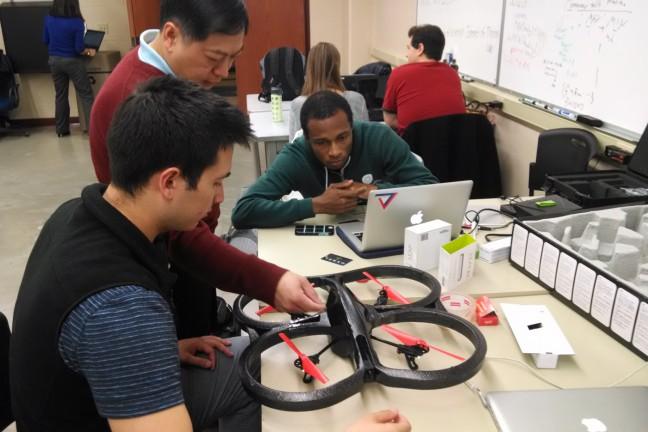Next week, two familiar faces will greet “Jeopardy!” viewers – Brad Jutter and Ken Jennings (the two most winningest champions in the history of the show) – and one computer screen with a black, rotating orb on it.
Ladies and gentlemen, meet Watson.
Watson is the new super computer developed by IBM, coming just 14 years after the company’s former super-computer, Deep Blue, defeated the reigning world champion in chess, Garry Kasparov. However, unlike Deep Blue, Watson has been fed thousands and thousands of pages from resource texts, novels, plays, movies and countless other pieces of pop and human culture memorabilia to make Watson as human as possible. As a result, while the computer will appear as a rotating orb on TV, it is actually the size of many refrigerators and takes up an entire room.
Although the computer has been fed decades of relics of human culture and history, it is unclear if Watson will be able to deal with the complex linguistic and cultural phrases that the show is usually so notorious for. Not to mention the trouble it could have buzzing at exactly the right time. (No word yet if Watson will have opposable thumbs.) This is an especially important trait since, according to famous Jeopardy champion Ken Jennings’ website, the winner of the show isn’t necessarily the most intelligent competitor; rather, it is the one with the quickest thumb.
Of course, all these theories will come into play when the Watson episode airs next week. Yet, regardless of game’s outcome, one thing is certain: The very development of Watson, and the machine’s ability to compete at a highly human level, demonstrates the leaps and bounds by which our technology, and its ability to create effective artificially intelligent machines, has grown since the turn of the century.
After all, in just 14 short years, some of the country’s brightest computer engineers and programmers have been able to move forward from a computer that can simply beat the reigning world chess champion to one that can correctly answer “Jeopardy!” questions 90 percent of the time. I mean, don’t get me wrong, chess is a ridiculously hard game (the last time I played, my younger brother of five years destroyed me, so I’m really not in the position to judge anyone if they lose). But with all its tricky, complex clues, “Jeopardy!” is even tougher.
If Watson wins next week, it will undoubtedly make headlines around the country. And someone, somewhere, will bring up that horrible 2001 Steven Spielberg movie starring Haley Joel Osment, declaring that we are headed in that direction and it is only a matter of time before we develop freaky robotic children who try and kill our real kids before moving on to all members of human civilization – I can hear Glenn Beck blaming Obama already.
If Watson doesn’t win, of course, society’s faith in the superior intellect of the human mind will be confirmed. However, for how long? Eventually, it’s likely that some computer genius will eventually develop a computer with enough smarts to beat “Jeopardy!” champions or whatever other feat the entertainment or gaming industry provides.
That doesn’t have to be scary, though. Instead, we can move our society forward through the use of such machines and ultimately improve because of them. Provided, of course, they don’t malfunction, develop their own cognitive reasoning skills and try to kill us or anything.
Rachel Vesco is a senior majoring in journalism, political science and Facebook stalking. For future column ideas, email [email protected] (or find her on Facebook).
















